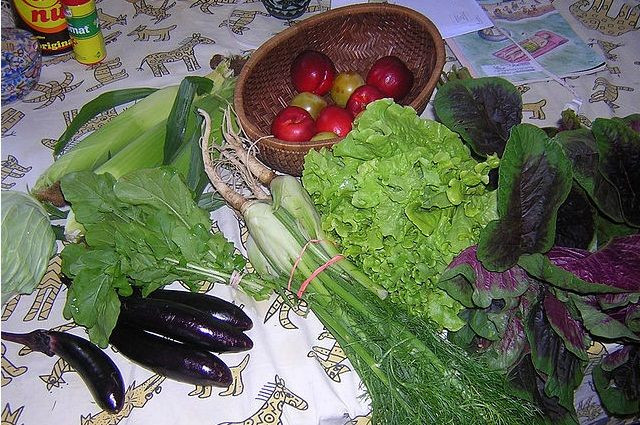Vegetables High in Iron Reduce Severe PMS Symptoms

Premenstrual syndrome (PMS) symptoms can be debilitating for some women, but new research shows that those who eat a diet full of vegetables high in iron are less likely to suffer.
In one of the first studies that observed the effects of mineral intake on severity of PMS symptoms, American researchers at the University of Massachusetts at Amherst and Harvard evaluated the diets and overall health of about 3,000 women over a decade. Their case-control study was based on the Nurses' Health Study II from 1991-2001.
Participants were free from PMS symptoms at the beginning of the study period, and every few years their mineral intake was assessed by food frequency questionnaires. After 10 years, 1,057 women were confirmed as PMS cases and 1,968 as controls.
The results, published in the American Journal of Epidemiology, showed a very high correlation between significant dietary intake of vegetables high in iron and low risk of developing PMS symptoms.
Iron is a necessary dietary nutrient, forming a key part of many proteins and enzymes in the body that maintain healthy bodily function. Its main role is to help red blood cells transport oxygen throughout the body, and to regulate cell growth and differentiation. There are two types of iron: heme, which comes from meat, and nonheme, which comes from plant sources and is more easily absorbed by the body.
According to the National Institutes of Health, the recommended daily iron intake for most women is 18mg.
Sources of vegetables high in iron include:
- sun-dried tomatoes (9mg per 100g)
- dried apricots (6mg/100g)
- parsley (6mg/100g)
- soybeans, cooked (4.4mg/100g)
- spinach, cooked (3.5mg/100g)
- olives (3.3mg/100g)
- currants and raisins (3mg/100g)
- quinoa (3mg/100g)
- palm hearts (3mg/100g)
- lentil sprouts (3mg/100g)
- swiss chard (2.3mg/100g)
- broccoli (1.1mg/100g)
In the study, women in the highest fifth on nonheme iron intake, who ate more than 20mg of iron a day, were almost 40% less likely to develop PMS symptoms than those in the lowest fifth, who ate the least iron.
A high intake of zinc showed a less marked, but still substantial, benefit in lowering risk of PMS symptoms. Intakes of sodium, magnesium, and manganese were unrelated to PMS risk.
These findings suggest that eating plenty of vegetables high in iron may be useful in preventing PMS symptoms, though they do not yet prove a causal link.
The researchers, led by Elizabeth Bertone-Johnson, stress that additional research is needed to confirm the findings on PMS symptoms, though women can only be helped by eating vegetables high in iron to meet their suggested daily minerals requirement.
Bertone-Johnson suggested to the Telegraph that nonheme iron might help reduce PMS symptoms because it is involved with the production of the brain chemical serotonin, which regulates mood.
The takeaway: a diet full of vegetables high in iron is likely to help women decrease PMS symptom severity.



























